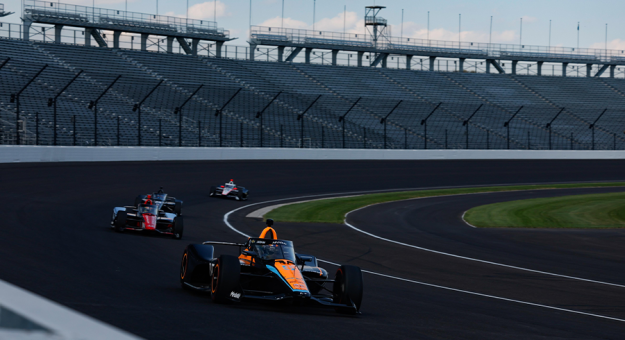INDIANAPOLIS — IndyCar Series officials will delay the implementation of the Hybrid Assist Unit until after the 108th Indianapolis 500.
IndyCar officials made the announcement on December 7.
IndyCar remain committed to the development of the Hybrid Assist Unit that will be part of the IndyCar engine package, but the much-anticipated debut of the new power unit is expected to launch after the 108th Indianapolis 500 presented by Gainbridge, during the second half of the IndyCar season.
It was originally intended to be in place before the March 10 season-opening race, the Firestone Grand Prix of St. Petersburg in Florida, on March 10.
IndyCar officials said on December 7, that since the initial on-track testing of hybrid components over a year ago, development of the new IndyCar 2.2-liter twin- turbocharged V-6 engine with hybrid technology has passed many significant milestones.
The IndyCar Series 2.2-liter twin-turbocharged V-6 engine was initially paired and tested with the hybrid unit Aug. 16, 2023, at Florida’s Sebring Int’l Raceway.
In just three months, a total of 15,256 miles of testing have been successfully completed with the new power unit among 13 NTT IndyCar Series drivers.
“The partnership between Chevrolet and Honda has been phenomenal,” IndyCar President Jay Frye said. “The IndyCar-specific hybrid power unit is dynamic and an engineering marvel, and we’re completely committed to its successful introduction next season.”
The IndyCar Series, Chevrolet and Honda are working in collaboration on the development of the first-of-its-kind hybrid unit with testing on tracks that mirror the disciplines of the IndyCar Series. Sessions have included ovals at Indianapolis Motor Speedway, Milwaukee Mile and World Wide Technology Raceway, road courses at IMS, Road America and Barber Motorsports Park and the street circuit-like surface at Sebring.
IndyCar’s hybrid power unit is expected to enhance the racing action with additional horsepower and further the series’ efforts to deliver the most competitive motorsport on the planet. The new powerplant unit will feature additional overtake (“push-to-pass”) options, ultimately giving IndyCar Series drivers more choices and control – enhancing the on-track competition and excitement.
The start of the upcoming NTT IndyCar Series season is expected to feature enhanced possibilities of track records with lighter chassis components (aeroscreen, bellhousing and gearbox) prepared for the hybrid addition. Once the hybrid unit is integrated, the remaining races this season will feature the intensified engineering and wheel-to-wheel precision of the hybrid power era.
The hybrid system is made up of the Motor Generator Unit (MGU) and Energy Storage System (ESS), which both fit inside the bellhousing, located between the IndyCar Series combustion engine and the gearbox. Multiple strategies for regeneration and deployment have been tested as the power unit builds and transmits energy through the MGU before being saved in the ultracapacitor ESS.
The additional horsepower is deployed through the same motor generator. Unlike the traditional IndyCar “push-to-pass” system, the hybrid power unit will not have a restriction on total time used over the course of a race.
Additional testing and continued development of the hybrid package will continue throughout the winter and spring months ahead of the first race in 2024. More information on the competitive launch of the hybrid unit will be announced at a later date.
